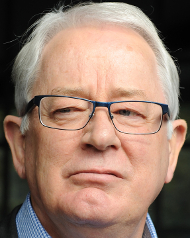Robb defends full TPP text, now revealed
 The full text of the Trans-Pacific Partnership (TPP) has been released, causing Australian Trade Minister Andrew Robb to tell everyone to calm down.
The full text of the Trans-Pacific Partnership (TPP) has been released, causing Australian Trade Minister Andrew Robb to tell everyone to calm down.
The fine print of the 12-country trade deal designed to eliminate 98 per cent of tariffs, has been publicly released.
But the release has done nothing to ease concerns already raised about provisions affecting IT, health, environmental law and labour rights.
Andrew Robb, who was involved in the final negotiations on the deal started under Labor, has told reporters that he is frustrated detractors have come out already.
“Within 20 minutes [of the release] there were predictable people ringing media outlets giving so-called expert opinions,” he told the ABC.
“They don't do themselves any sort of justice by jumping at shadows and peddling lines they've been peddling for years without looking at what's been negotiated.”
Intellectual property law professor at the Queensland University of Technology, Matthew Rimmer, said it would take time for experts to sift through the agreement in a meaningful way.
“It will be very challenging, I think, for policymakers around the Pacific Rim to digest this epic leviathan of an agreement which is very technical and prescriptive and also complex in terms of its details,” he said.
“It seems to me remarkable that the environmental chapter in the Trans-Pacific Partnership doesn't even mention the phrase climate change.
“It's kind of like Voldemort in the Harry Potter series, it's a taboo phrase in the Trans-Pacific Partnership.”
Mr Robb rejects even that cursory assessment.
“This is not a climate change policy, it's not an agreement to do with climate change, it's a trade agreement,” he said.
“It's a trade agreement which looks at issues relating to trade that can affect public policy in the environmental area.”
There is strong dislike for the TPP growing among Democrats in the US, leading to speculation that it will be opposed in the US Congress and fall through.
This would make it almost impossible to ratify for the other nations involved.
But Mr Robb says he is confident that the US Congress will accept the deal.
“My feeling is that this issue is so important to the United States that in the end, whoever's president, whoever's in congress this issue will pass through the congress because of the significance to the region for the United States.”







 Print
Print